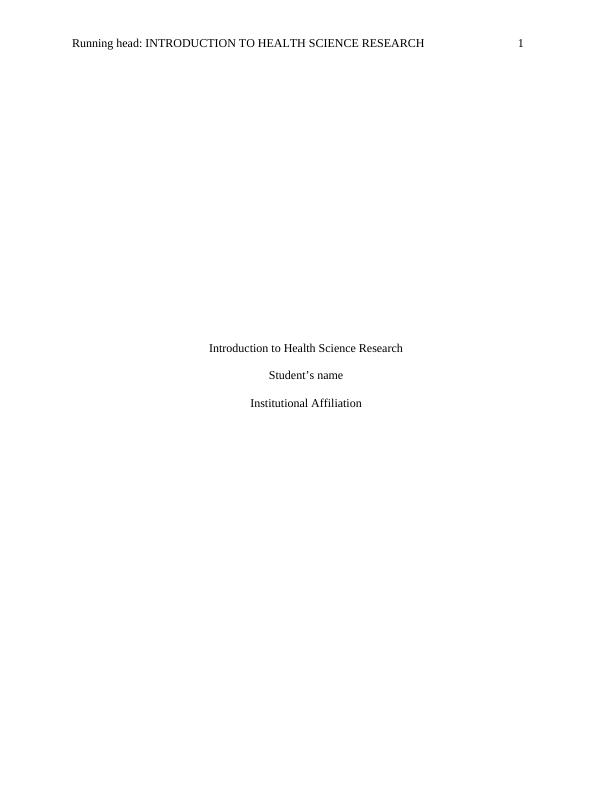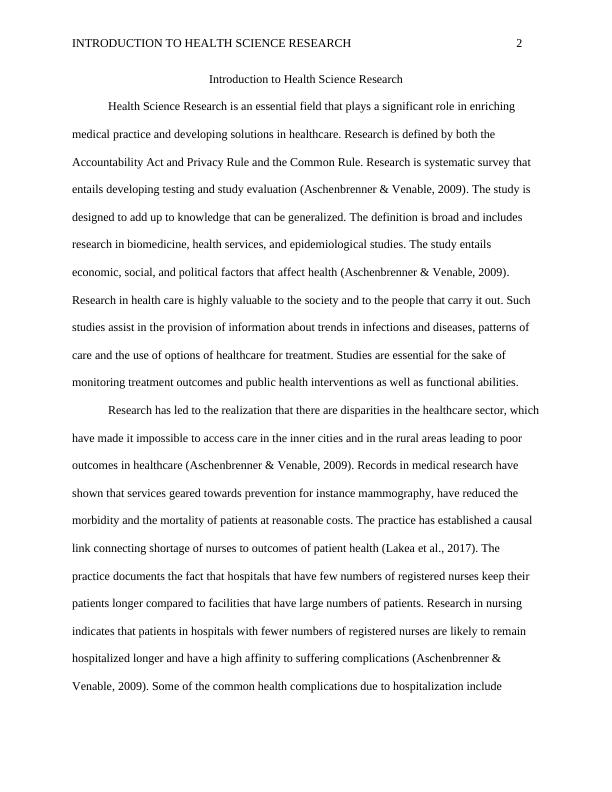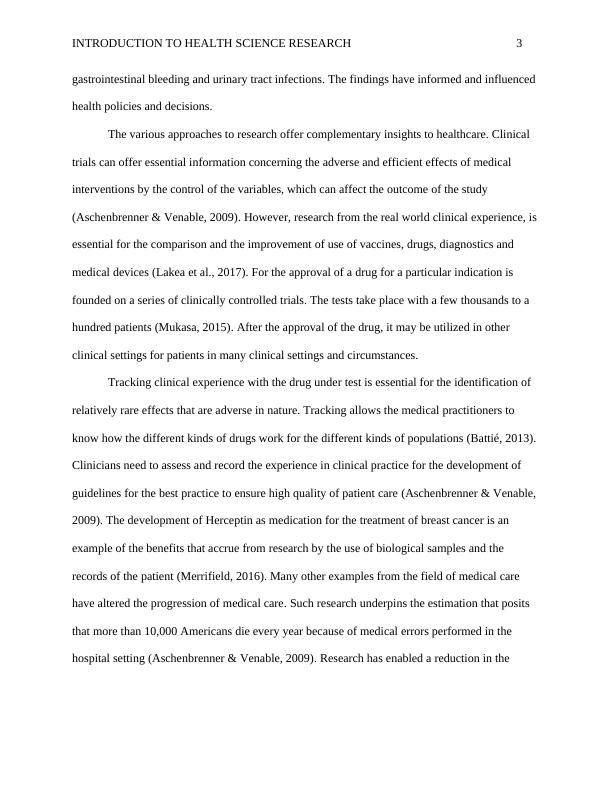Introduction to Health Science Research
Literature review on medication administration errors in Australian hospitals and methods to reduce interruptions in healthcare of nurses.
6 Pages1235 Words214 Views
Added on 2023-06-11
About This Document
This article discusses the importance of Health Science Research in enriching medical practice and developing solutions in healthcare. It covers the definition of research, its value to society, and its impact on healthcare policies and decisions. The article also highlights the complementary insights offered by different research approaches and the benefits of tracking clinical experience with drugs under test. Finally, it emphasizes the importance of research in medicine and nursing for increasing knowledge, creating depth, and clarifying previously researched information.
Introduction to Health Science Research
Literature review on medication administration errors in Australian hospitals and methods to reduce interruptions in healthcare of nurses.
Added on 2023-06-11
ShareRelated Documents
End of preview
Want to access all the pages? Upload your documents or become a member.
The greater willingness by clinicians to prescribe
|13
|3524
|19
Johns Hopkins Nursing Evidence-Based Practice Article 2022
|21
|3398
|29
Critical Appraisal of Nurses' Experiences and Perspectives on Medication Safety Practices
|8
|1829
|447
Theory, Research, and Practice in Nursing
|21
|2078
|33
Registration of an innovative biological product in US
|10
|2025
|373
Safety Using in Nursing Research 2022
|7
|1594
|13



